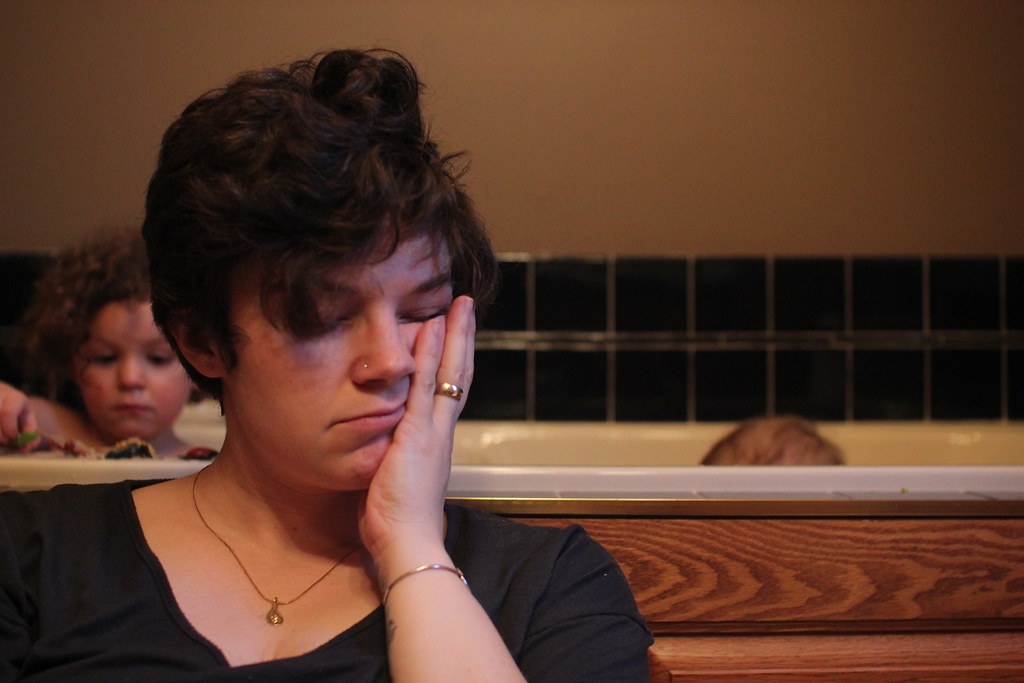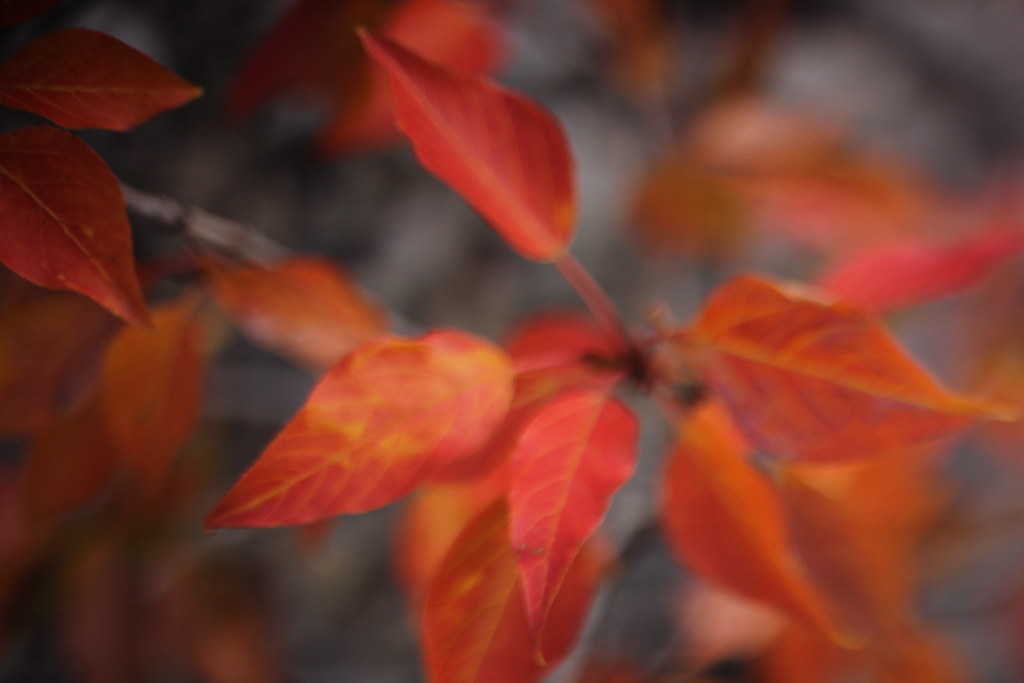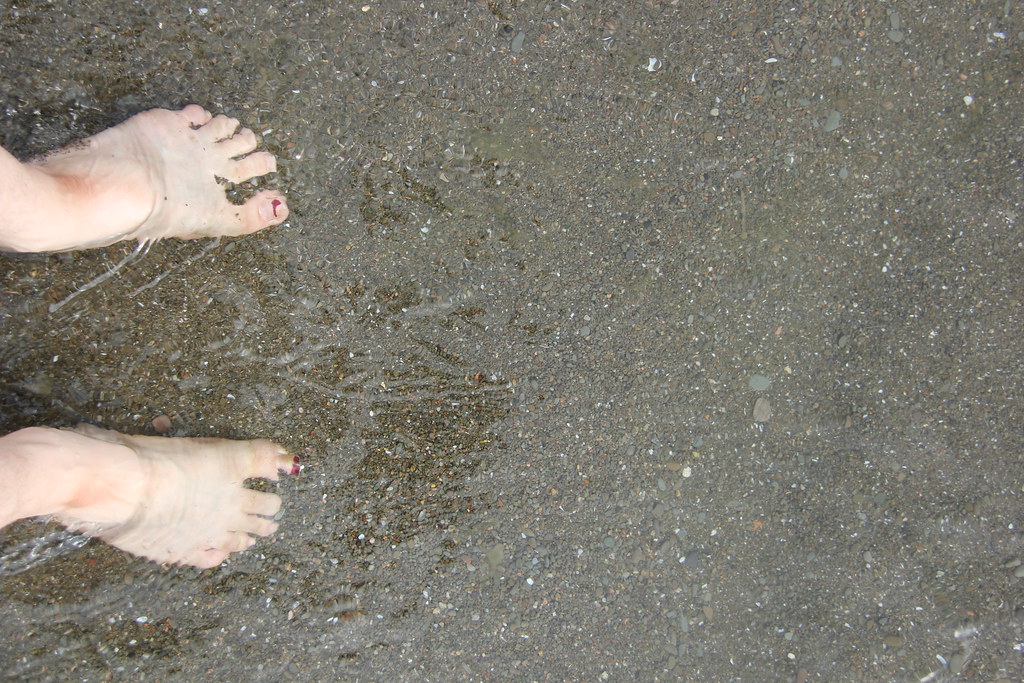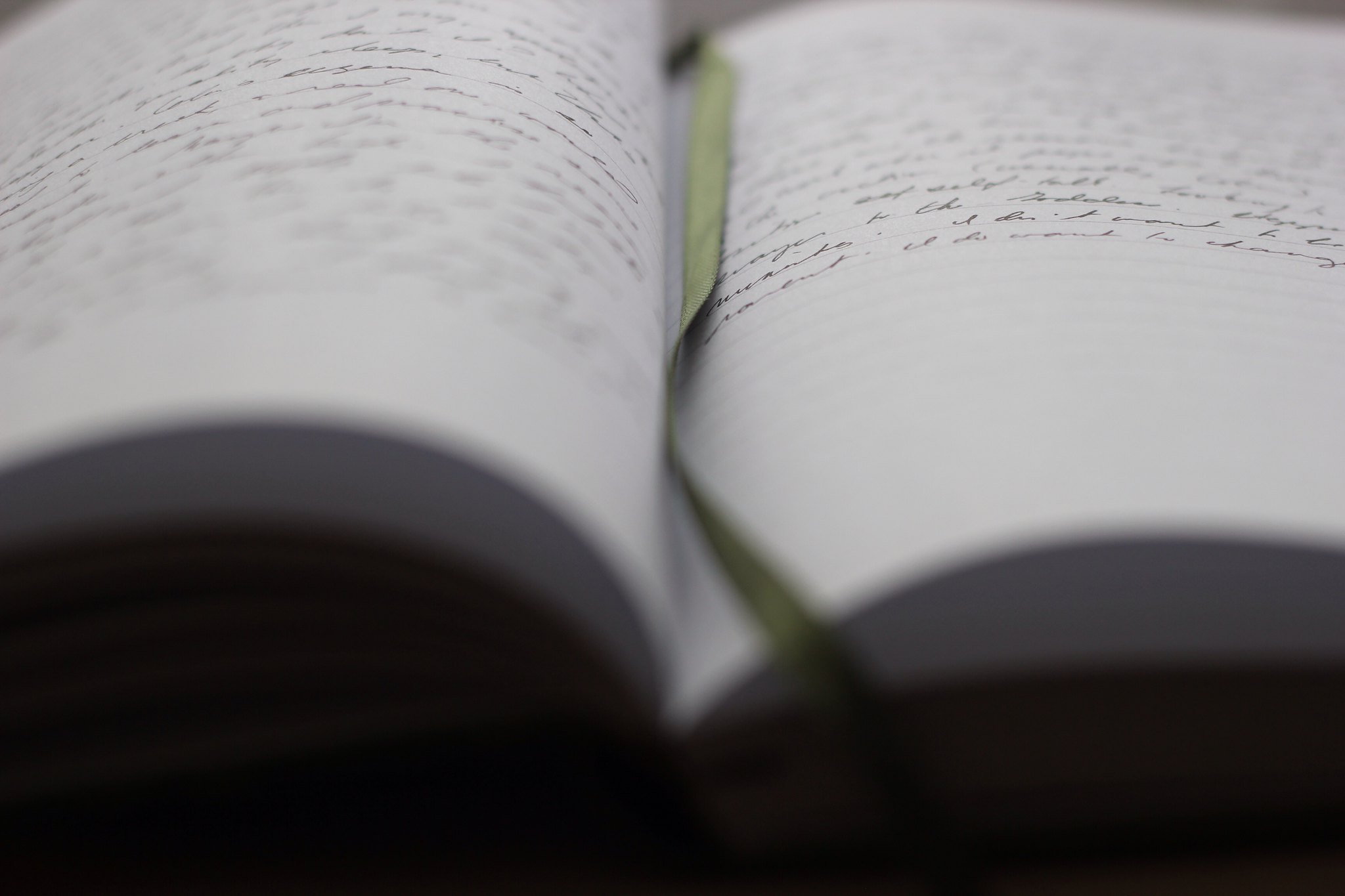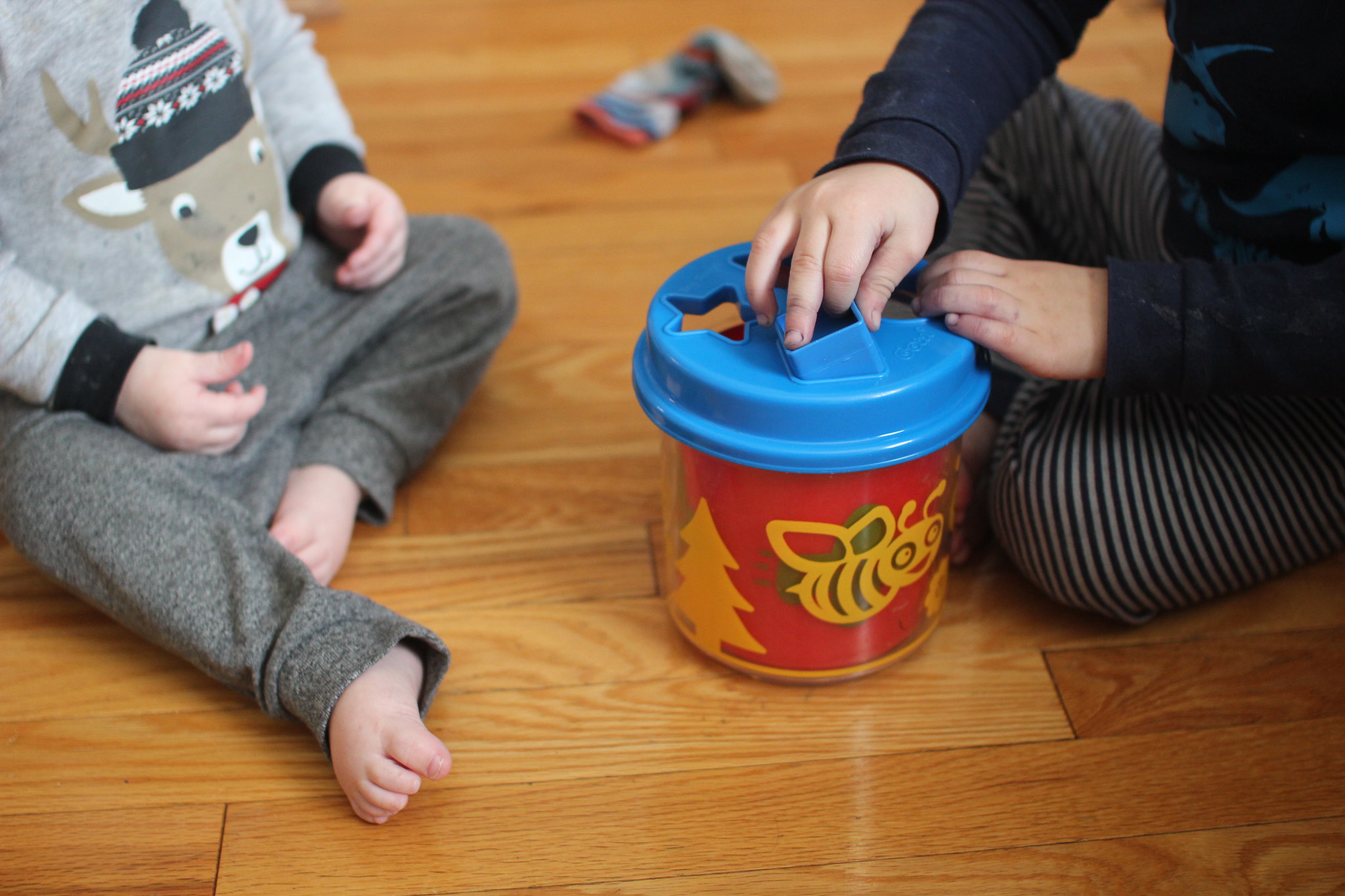I used to believe that I could write only when the mood struck, when inspiration hit. I believed that if I just waited patiently in between those bursts, another idea would come eventually. Now, I understand that the real work of creating comes between those (rare, precious) bursts of true creative inspiration. The real work of creating is just showing up, day after day, sometimes kicking and screaming.
As I sit here musing over this aspect of the creative life, it occurs to me that parenting is much the same. Most mornings, I wake up feeling unrested. I open my eyes and I think "already I have to get up with these kids? Didn't we just go to sleep?" I expect to get out of bed with the ache in my lower back and pelvis and thighs and feet having been soothed by sleep, only to find the ache is still there. It's a constant in my life. I change diapers, I get the kids breakfast, I refresh my Facebook feed, bleary eyed. I nurse the baby. The sun comes up, the boys start to get wild and I know I need to engage, I need to get us all outside. But the ache. The tired. I just want to sit, and rock in the rocking chair, and close my eyes. But doing that is always so much harder than pushing myself to get up and get us all dressed and out the door for an hour. And eating junk convenience food for dinner always feels so much worse in the end than actually prepping and cooking a real meal.
Every day of this parenting gig I feel like I do the impossible. I wonder how the hell I can possibly get through another day, but then I just do. I'm sure most parents, moms of more than one child in particular, are familiar with the question: "How do you do it all?" I don't even know how to answer this. I shrug. Because I have to. I have to do this, I have to show up every. single. day. And feed and dress and engage with these little people because I don't have a choice. I have to do this work because I can't NOT do it. And some days are fabulous. Some days are beautiful and smooth, they just flow from moment to moment like my pen flows across a clean blank page in those rare moments of true inspiration. I push through so I can be open for those inspired moments.
So, in writing poems as well as in parenting, I just continue to show up. When I don't feel like it, when I'm tired, when I want to do anything but. I put one tired foot in front of the other, and keep plodding along.
